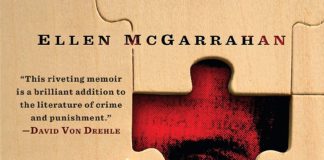
Here’s a look at what The Conversation, a non-profit source of explanatory journalism from experts in academia, is offering today.
AP members may find The Conversation content on AP Newsroom or through AP webfeeds. For technical assistance, please contact apcustomersupport@ap.org or call 877-836-9477.
If you have any questions on The Conversation content, including:
– Requests for cut-down copy
– Photos and chart availability
– Information on upcoming stories and coverage plans
Please contact Joel Abrams at us-republish@theconversation.com or 857-233-8429.
——-
TODAY’S HIGHLIGHTS:
-Carl Nassib
-Conversion therapy
-Palm oil
——-
STORIES:
Why it’s such a big deal that the NFL’s Carl Nassib came out as gay
ADVERTISEMENT
COMMENTARY The quest to combat discrimination against LGBTQ athletes has been long and fitful, particularly in male team sports. 1112 words. By John Affleck, Penn State
SCIENCE OR TECHNOLOGY If an organization that has your data gets hacked, your vulnerability depends on the kind of attack and the kind of data. Here’s how you can assess your risk and what to do to protect yourself. 963 words. By Merrill Warkentin, Mississippi State University
The behind-the-scenes people and organizations connecting science and decision-making
SCIENCE OR TECHNOLOGY Before new policy can be based on evidence, decision-makers need to understand the relevant research. Intermediaries between scientists and policymakers translate information and build relationships. 708 words. By Stephen Posner, University of Vermont and Jennifer Watling Neal, Michigan State University
RELIGION Kentucky lawmakers are trying to make the state the 21st to enact a ban on conversion therapy. In states that are ‘silent’ on the issue, nonprofessionals are allowed to continue the harmful practice. 1057 words. By Donna Sheperis, Palo Alto University and Carl Sheperis, Texas A&M-San Antonio
ADVERTISEMENT
Why choosing the next dalai lama will be a religious – as well as political – issue
RELIGION For Tibetan Buddhists it is important that they are in charge of the selection process for the next dalai lama, but China wants to appoint its own. 1205 words. By Brooke Schedneck, Rhodes College
How palm oil became the world’s most hated, most used fat source
COMMENTARY Palm oil is responsible for widespread deforestation and labor abuses, but it’s also cheap and incredibly useful. That’s why many advocates call for reforming the industry, not replacing it. 1166 words. By Jonathan E. Robins, Michigan Technological University
Gifted education programs don’t benefit Black students like they do white students
COMMENTARY Gifted programs may have to revamp the way they operate in order to benefit all students, new research suggests. 625 words. By Christopher Redding, University of Florida
COMMENTARY Her giving style is unusual for a billionaire donor. 934 words. By Ivory A. Toldson, Howard University
‘Wrong number? Let’s chat’ Maasai herders in East Africa use misdials to make connections
COMMENTARY Maasai in Tanzania use their mobile phones all the time – usually to communicate with people they already know. But dialing errors can also breed friendships and business opportunities. 1326 words. By Timothy D. Baird, Virginia Tech; Emily Woodhouse, UCL, and J. Terrence McCabe, University of Colorado Boulder
COMMENTARY The area’s iconic national parks are home to grizzlies, elk and mountain snowfall that feeds some of the country’s most important rivers. They’re also warming faster than the nation as a whole. 960 words. By Bryan Shuman, University of Wyoming
Despite outrage, new state voting laws don’t spell democracy’s end – but there are some threats
COMMENTARY Are the election law changes proposed in statehouses across the country really as bad as some say? An election law scholar cuts through the yelling to take a sober look at the new voting landscape. 1429 words. By Derek Muller, University of Iowa
How gay neighborhoods used the traumas of HIV to help American cities fight coronavirus
COMMENTARY Having survived the HIV/AIDS pandemic, gay communities in the US were well equipped to get residents health and social services early in the pandemic, when the government’s COVID-19 response lagged. 968 words. By Daniel Baldwin Hess, University at Buffalo and Alex Bitterman, Alfred State College of Technology, The State University of New York
Use of these stories is subject to the conditions at http://bit.ly/TCUSinfo.







